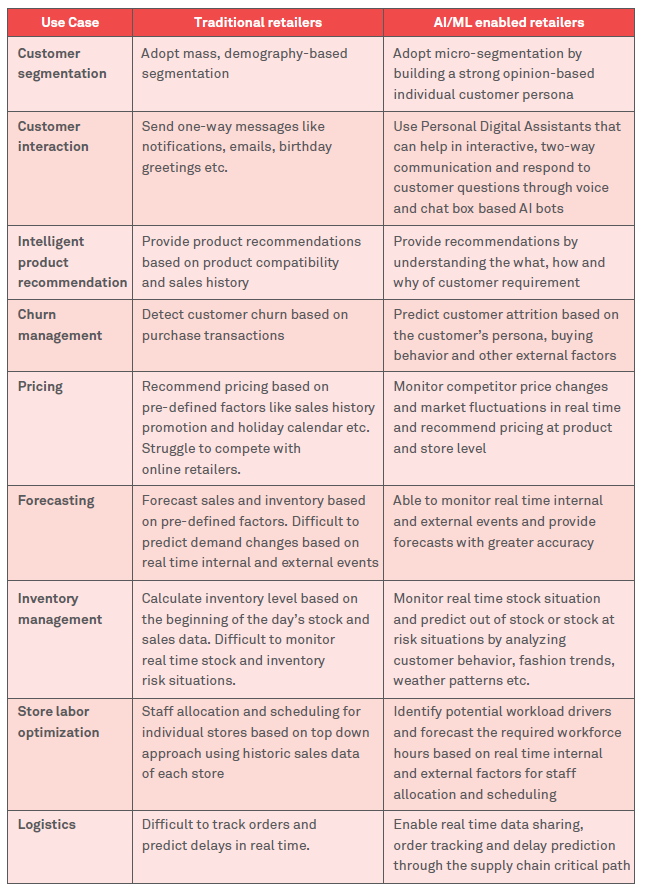If customers have a negative experience shopping with one retailer, they don’t have to go far to find another. The advent of online retail has put a staggering number of options within a few taps of the keyboard. A retailer that abruptly discontinues a beloved product will just as abruptly lose that product’s customers, while a retailer that sends its customers tailored offers stands to gain their loyalty.
Let’s take a look at some real world examples:
For both online and brick-and-mortar shops, success hinges on understanding enough about their customers to create individualized experiences—a fact retailers are recognizing. The global retail analytics market is estimated to reach $10.4 billion by 20231 and, according to a JDA Software survey, 40 out of 100 merchandising professionals and category managers said big data and predictive analytics are their top investment priorities over the next 5 years.2
A changing retail landscape
Retailers who have embraced digital transformation successfully are gaining a significant competitive advantage in an atmosphere where customer experience rules. And while traditional retailers are adopting digital technologies such as Internet of Things (IoT), mobile, augmented reality (AR) and virtual reality (VR), artificial intelligence (AI) and machine learning (ML) to connect with customers, digital players have recognized the advantages of establishing brick-and-mortar locations to round out the experience they can offer their customers.
Here are a few of the most disruptive developments in retail today:

How data analytics and artificial intelligence will reshape retail operations
To achieve a successful digital transformation, retailers need to do more than simply acquire huge data sets. Artificial intelligence capabilities can equip retailers with the ability to ingest large volumes of data in various formats across locations, learn from patterns, and respond in real time.
In our experience with providing data analytics support to a leading US electronics retailer, we saw that artificial intelligence (AI) and machine learning (ML) resulted in 4% increase in sales and 5% improvement in promotion effectiveness. Creating a 360˚ customer profile also helped generate relevant, personalized offers to customers.
In addition to helping retailers customize their offers, AI and ML enable predictive analytics, allowing retailers to project the details of a customer’s history into the future, and calculate outcomes for events such as product sales or store renovations. Understanding these outcomes vastly increases retailers’ ability to prepare for events and respond to customers proactively. Thus, AI and ML offer enormous potential for retailers to deliver compelling customer experience, drive cost efficiencies, and even improve employee motivation. Data analytics, AI and, ML have already begun to disrupt the way retailers do business. Retailers that successfully adopt digital technologies will reap competitive advantages.
References
1 https://www.researchandmarkets.com/reports/4392738/global-retail-analytics-market-2017-2023#pos-1
Karthikeyan Subramaniam
Principal Consultant, Analytics and AI Consulting
Consulting Practice, Wipro Limited.
Karthikeyan Subramaniam is a Principal Consultant with 15 years experience in designing, developing, and delivering innovative data solutions across merchandising, supply chain, and store operations.
He plays a key role in helping large enterprises embrace data and transform into business outcome-driven organizations.
Get in touch: global.consulting@wipro.com